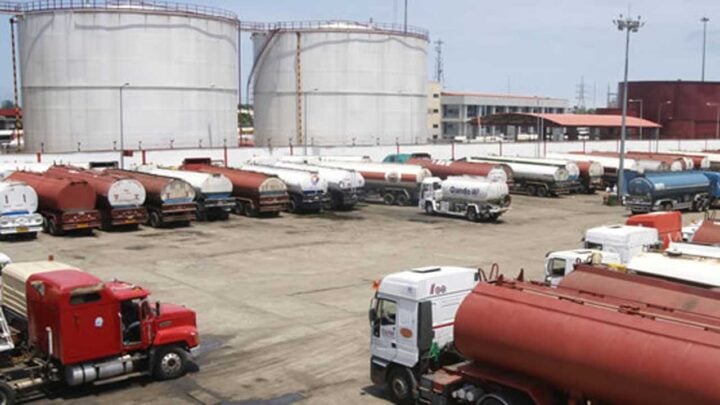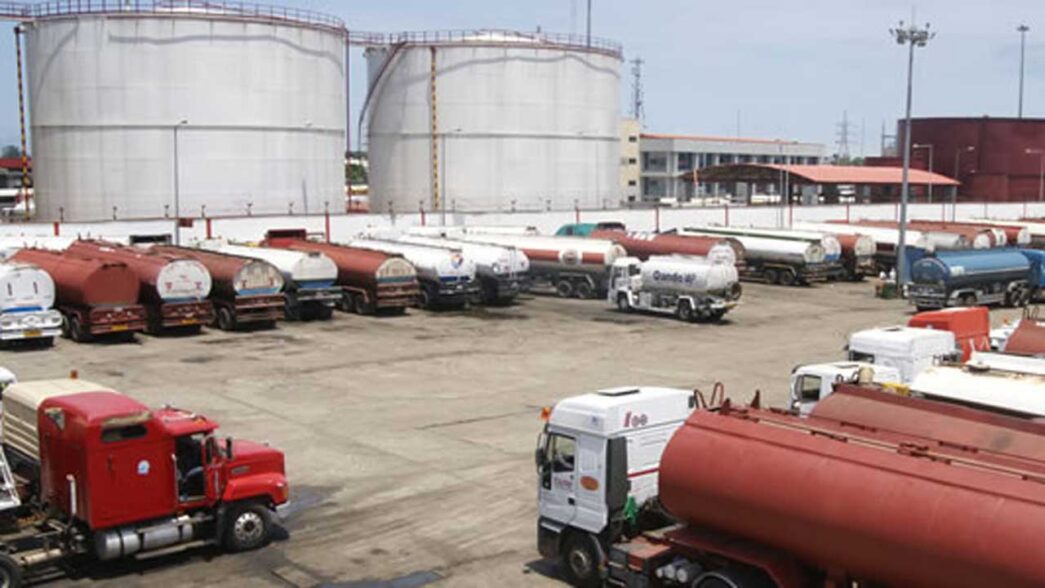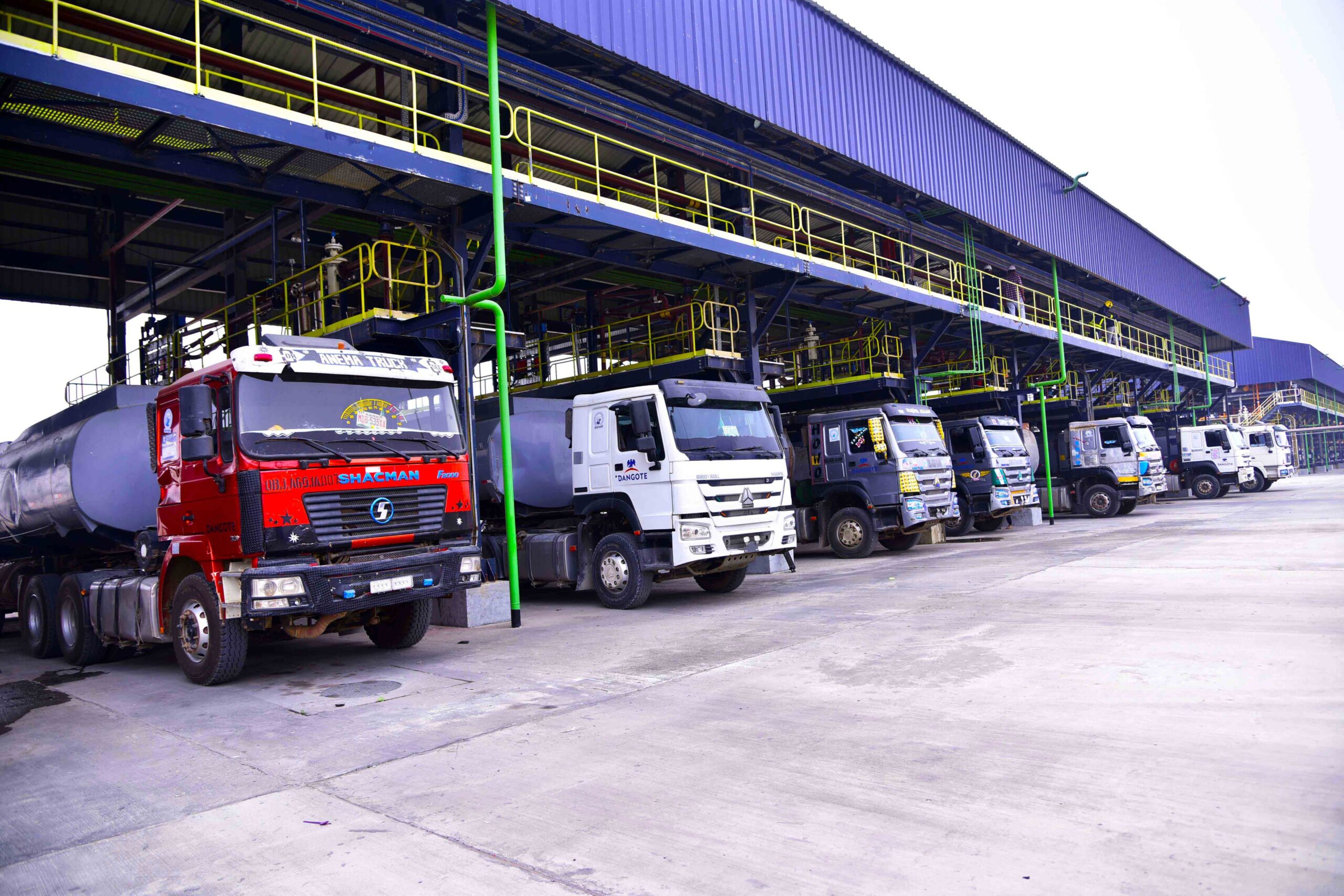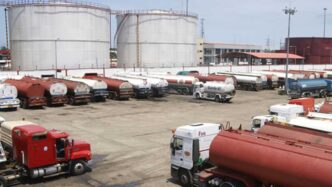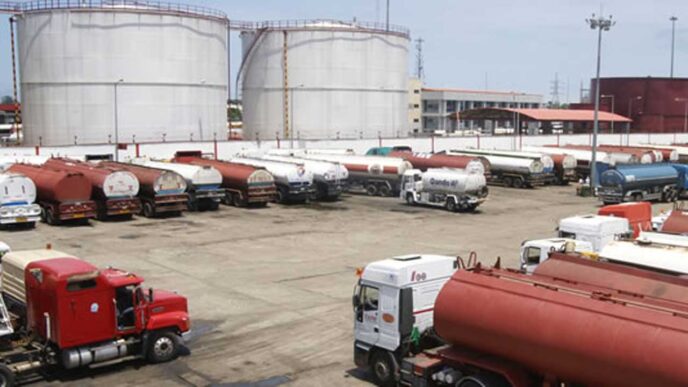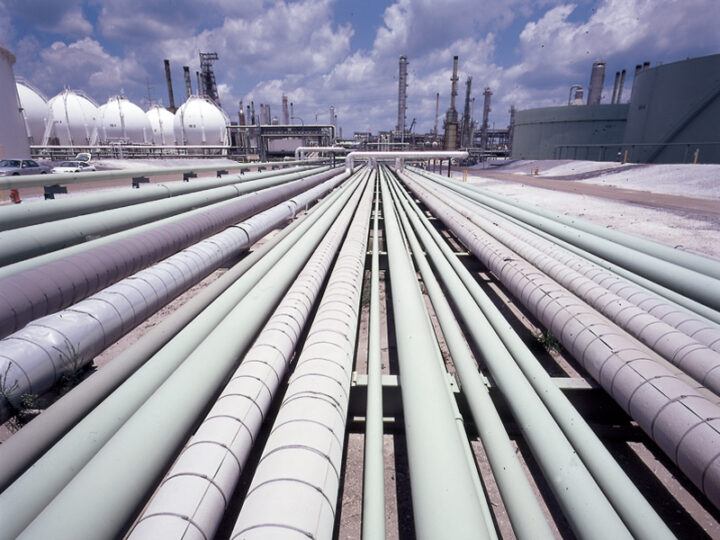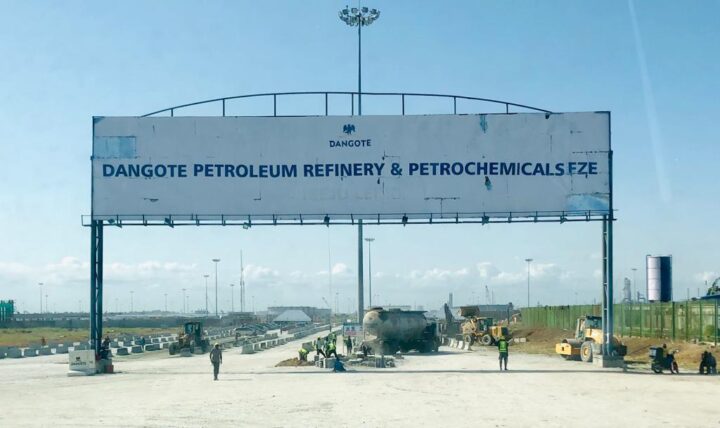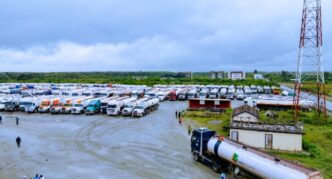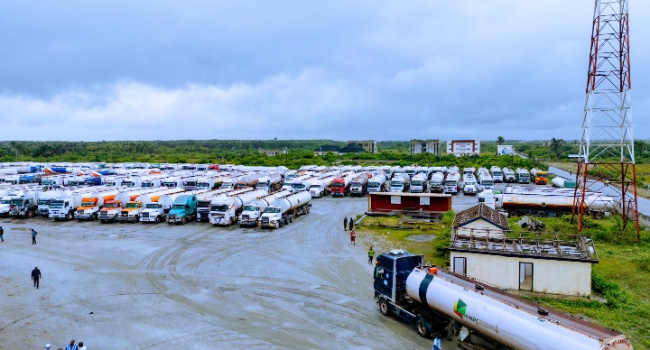Ogbugo Ukoha, executive director (ED) of distribution, storage system and retail infrastructure at the Nigerian Midstream and Downstream Petroleum Regulatory Authority (NMDPRA), says investment is needed to tackle inefficiencies in the country’s petroleum supply chain.
Ukoha spoke on Wednesday at the OTL Africa Summit in Lagos.
In his presentation during the “Nigeria Fuels Congress: Issues in Pricing, Policy, Profits, and Market Access” session, Ukoha said upgrading port infrastructure is essential to reduce costs incurred from smaller vessels and limited draft channels.
“The probability to receive LR1 vessels that can bring in 90,000 to 150,000 metric tonnes is limited, and at MRS, we can do up to 60,000 tonnes,” the NMDPRA director said.
Advertisement
“Imagine when we were importing petrol directly from Rotterdam, we could bring in 90-kilo tonne vessels directly to discharge points.
“Now, vessels have to go through Lagos anchorage, where we do ship-to-ship (STS) transfers and parcel cargoes of 20,000 to 30,000 tonnes to smaller vessels that undertake multiple 10-day voyages to Calabar,”
He said charter costs could range from $50,000 to $100,000 per day, contributing to operational inefficiencies that increase overall expenses.
Advertisement
“These are inefficiencies we can eliminate. It’s not just about the availability of coastal vessels, but also about the channel draft which is insufficiently deep. People are paying extra, and all of these inefficiencies accumulate and affect the overall cost,” Ukoha said.
‘OPERATIONAL INEFFICIENCIES COULD BE ELIMINATED WITH INVESTMENTS IN DREDGING’
Ukoha said the operational inefficiencies could be eliminated with investments in dredging and port improvements to accommodate larger vessels, thereby reducing overall transportation costs.
He gave an instance of a recent inspection with NMDPRA’s executive vice-president, downstream, at Tincan Island anchorage, where vessel backlogs occurred due to one vessel grounding at Escravos.
Advertisement
“A few days ago, we were at the Tippy Sole [Tincan Island Anchorage], watching as vessels were queued up at Escravos because one vessel had gone aground. This required evacuation and took many days to resolve,” he said.
“Important ports like Warri, Koko, and Ogara have just a 6.5-meter draft at the channel entrance, which means vessels risk running aground. These are critical inefficiencies, and the solution is the right investment and funding.”
Highlighting Lekki as a promising model, Ukoha pointed to Pinnacle and Dangote’s seaport facilities as examples of ports capable of receiving larger medium-range one (MR1) vessels.
MR vessels are designed to transport refined petroleum products such as petrol, diesel, and jet fuel.
Advertisement
Ukoha added that Apapa jetty and other locations need substantial upgrades to handle increasing operational demands.
The executive director called on commercial banks to partner with investors focused on the sector, adding that with adequate funding, the industry could lower operational costs and boost efficiency.
Advertisement
He also expressed concern over the reliance on trucking for distribution, describing it as both expensive and hazardous.
Ukoha referenced a tragic incident in Jigawa, where over 70 unidentified individuals were killed in trucking accidents, to underscore the safety risks associated with current practices.
Advertisement
The NMDPRA director advocated for significant investment in pipeline infrastructure, which he described as the safest and most cost-effective way to transport petroleum products.
“The cheapest and most efficient global means of transporting products is by pipeline, and we need to return to that,” he said.
Advertisement
“Rail transport also presents opportunities, but currently, we rely heavily on trucks. Trucking is an unsustainable and risky way to transport petroleum products.
“We need to encourage more investment in pipelines.”
‘NIGERIA NEEDS AUTOMATED TRUCKS TO TRACK PETROLEUM PRODUCTS MOVEMENTS’
Addressing the risk of petroleum diversion, especially near Nigeria’s borders, Ukoha outlined plans to work closely with customs under ‘operation whirlwind’.
He suggested that fully automated trucks be mandated to enhance tracking of petroleum product movements from origin to destination.
Ukoha also encouraged marketers to adopt automated processes for regulatory licensing and monitoring to enhance transparency across the sector.
In the retail segment, he proposed an annual reward system to recognise customer-centric and profitable retailers, incentivising overall service improvement.
The ED said as the Nigerian market shifts toward cleaner energy sources like liquified petroleum gas (LPG) and compressed natural gas (CNG), retail outlets should also diversify their offerings.
“Before the unbundling of the Department of Petroleum Resources (DPR), retail outlets required storage for diesel, kerosene, and petrol before approval,” he said.
“With kerosene now obsolete and diesel’s market share expected to decline, petrol is the only product offered. As Nigeria shifts towards LPG and CNG, we need retail outlets to diversify.”
Speaking on the NMDPRA’s strategic petroleum reserve initiative, he outlined a gazetted regulation mandating a 60-day storage capacity for petroleum products.
The reserve, according to Ukoha, is to stabilise supply and prices in times of emergency, such as recent floods in Lokoja that affected northern Nigeria’s supply chain.
“NNPC has extensive storage capacity in northern Nigeria, and we look forward to collaborating with them and other stakeholders to implement this,” he added.
Ukoha said the regulation is not solely about storing products but aims to establish a secure supply chain capable of withstanding unforeseen disruptions.
Add a comment
